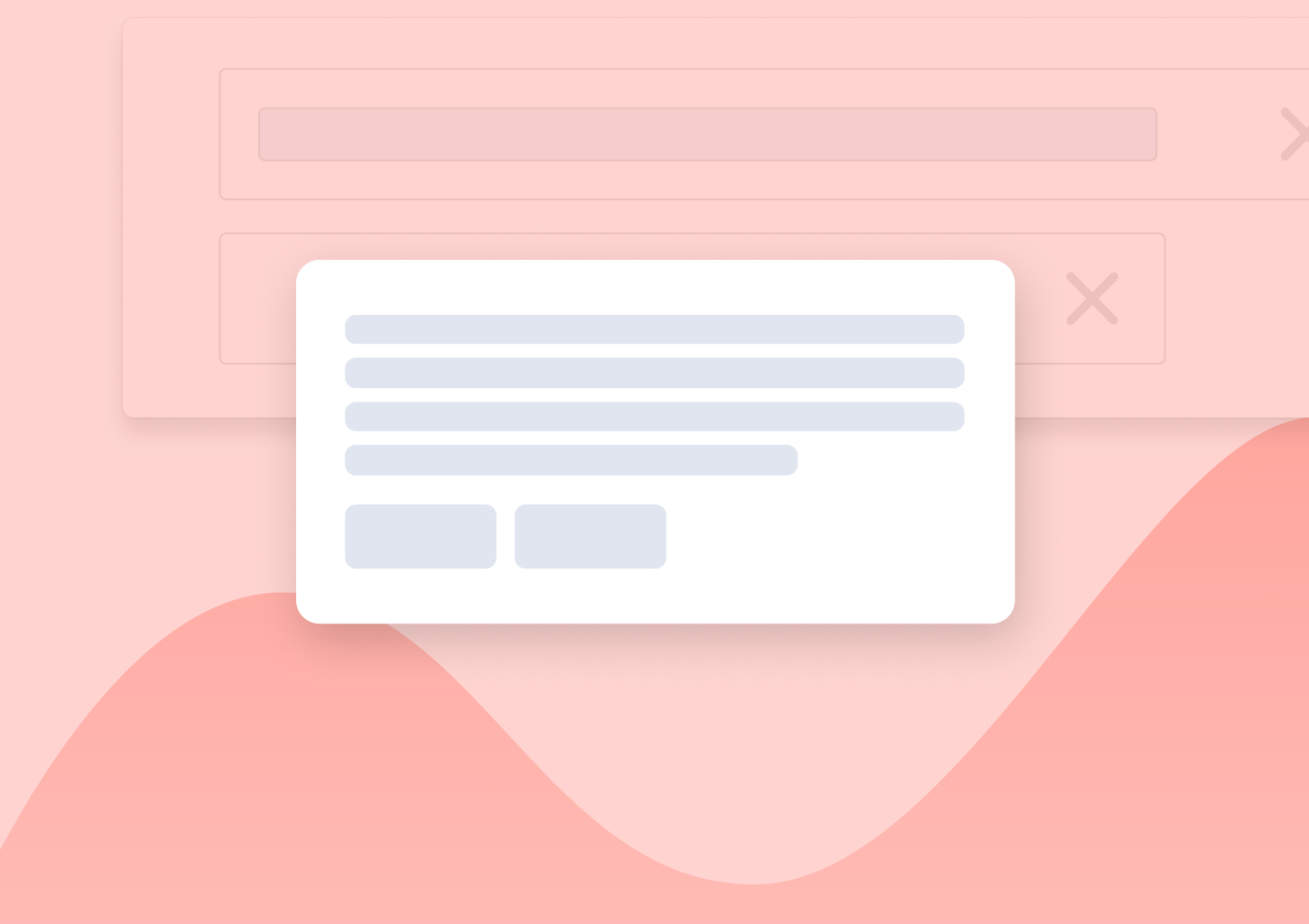3 Types of Customer Satisfaction Surveys and How to Use Them
Are you thinking of collecting customer feedback but aren’t sure which type of customer surveys to use?
Low completion rates, inaccurate response data, bad UX, …. We heard all kinds of reasons why customer experience surveys are not working.
And sometimes the problem is the wrong type of survey the company is running. Other times, however, such a survey is just not the right tool to gauge customer satisfaction.
In this article, you’ll discover what types of customer satisfaction surveys you could use for your company.
On top of that, we’ll also show you some ideas for alternative surveys to evaluate customer sentiment towards your brand, products, or services.
What is a Customer Survey
A customer survey is a strategy allowing businesses to quickly collect customer feedback.
The purpose of running a customer survey is to research various attitudes of existing customers and evaluate how well a company is meeting customer expectations without putting too much pressure on the person.
Many customer surveys would ask a single question only, making them a truly effortless way for customers to provide feedback.
A company, in turn, receives valuable insights that can help them improve all aspects of its operations, from customer service to product development, and grow the business in turn.
The Different Types of Customer Surveys
Customer satisfaction surveys help collect a whole range of feedback. And because of that, some survey types would suit certain situations better than others.
On the whole, however, there are four primary types of customer satisfaction surveys:
- Post-purchase surveys aiming to measure the satisfaction with the product or service but also the overall product delivery, or the person’s experiences with the onboarding process.
- NPS surveys to determine customer loyalty and the likelihood of them recommending you to friends and family.
- CSAT surveys helping a company to understand its customers’ satisfaction levels with the organization, or its products or services.
- Product surveys allowing customers to share feedback and influence future product features.
Let’s go through those survey types in detail, then.
#1. Post-purchase Surveys
As the name indicates, a post-purchase survey helps collect feedback after a transaction or sale has been completed. This type of customer satisfaction survey can provide invaluable insights into how customers perceive your sales process, from the initial inquiry to the actual purchase, and the onboarding process.
Why conduct post-purchase surveys:
- To show that the company cares about its customers and to strengthen relationships with new customers.
- To uncover problems and bottlenecks with the purchase process.
- To collect additional information about your customers’ preferences.
#2. NPS Surveys
NPS is one of the most popular customer survey types.
This particular survey type helps brands determine how many of their existing customers are satisfied with the product or service to a point of recommending it to their family, friends, or colleagues from work.
NPS surveys use a simple 0-10 scale that measures what is known as an NPS score. The score helps a company to divine its user base into three categories:
- Promoters – Users who’d be willing to recommend it easily.
- Passives – Customers who aren’t sure whether they’d be willing to do so, and
- Detractors – Customers completely dissatisfied with the company’s offering.
#3. CSAT Surveys
The customer satisfaction (CSAT) survey is another scale-based research tool. In this case, however, CSAT collects insights into how happy customers are after they’ve purchased from a brand.
The survey, typically, uses a single question:
“How would you rate your overall satisfaction with the [product/service]?”
CSAT also uses a 5 point scale that customers can use to rate their satisfaction levels.
#4. Product Feedback Surveys
Finally, this type of survey includes customers in planning the product development roadmap.
Your customers use the product every day, after all. Many of them would have ideas for features and new product elements.
Similarly, product feedback surveys could help you gauge customer interest in a feature you are planning to introduce.
Problems with Customer Surveys
It can be indeed challenging to run a successful customer survey.
There are a couple of well-known problems with customer surveys and pitfalls to avoid.
This is especially true if you are using outdated survey tools that were not designed for modern companies.
But let’s reserve this for another post. 🙂
Reasons why your customer surveys won’t work include:
- Prompting customers at the wrong time, with little context
- Not targeting the right people
- Asking too many questions
If your customer survey checks any of those points, your survey campaign is poised to fail.
Nobody likes long form questionnaires that you receive out of the blue at a random time. So let’s try to avoid them whenever possible.

What you’ll end with is low completion rates and inaccurate responses.
Trust me, we have seen it many times!
Quick spoiler alert: Refiner makes running successful customer surveys a breeze. But more on that in another post.
So let’s explore alternative data collection methods and what to use instead of surveys.
What are alternatives to customer surveys?
Before discussing customer survey alternatives, let’s talk about “customer data” for a second.
We see “customer data” basically as a proxy for “answers to questions you might have”.
What you’re really after are “customer insights”, distilled knowledge derived from raw data.
What that means is that in some cases, you can skip the “ask your customers” part entirely to achieve the same knowledge.
So what are alternative methods to surveys?
Let’s get started! In this post we will cover three popular alternatives to customer surveys.
Product Analytics Tools as an alternative to customer surveys
Product analytics tools like Mixpanel or Amplitude let you monitor user behavior. They tell you what your users are doing within your app, and equally import what they don’t do.
Next to identifying engaged users, Product Analytics Tools let you answer questions like:
- Which features are popular
- Where do users get stuck
- How much time to they spend in your app
- …
Capturing behavioral insights without bothering your customers is huge and we are big fans tracking user behaviour for product research.
However …
Product Analytics solutions cannot tap into the users’ minds and don’t tell you what and how your user thinks.
Tracking product engagement tells you “what” your users do, but not “why” they do it.
Data Enrichment APIs as customer survey alternatives
The promise of Customer Data Enrichment APIs is fantastic. Maybe too good to be true?
You provide them with an email address or company name, and seconds later you’ll receive tons of valuable data points.

Excepts … data provided by data enrichment providers like Clearbit is rather generic.
Is it enough to pre-qualify a lead … yes!
For other use-cases the data is likely too generic and not accurate enough though.
Let’s take a concrete example. Knowing the company size of a lead is great. Company size is a data point you can typically get from a lead data enrichment solution. And it’s a great piece of information.
But wouldn’t it be even better if you could know how big the team of your lead is? Or how much projects they are managing per month?
You get the idea.
Enrichment data is often times too generic to be valuable.
That being said, we still think that data enrichment can be a great alternative to surveying your customers.
Chatbots as an alternative to online surveys
Chatbots are great!
At Refiner, we don’t “love” them, but we think there many use cases where Chatbots do an excellent job.
However, customer surveys is not one of them.
Most chatbot tools allow you to ask your users multiple choice questions.
When a user answers those question, they can either be used to guide the user through a “conversation”, or they can be stored in a database.
But as the name suggest, Chatbots are all about starting (or avoiding) a conversation with customer. They are perceived as a conversation tool and not a survey tool.
This is a problem, because users who are not in the mood of chatting with someone, simply won’t interact with them.
In general, Chatbots seem to have a terrible low engagement rate these days.
We don’t have any numbers to back up this claim and we can only talk for ourselves, but it seems like most people just ignore them these days.
In our opinion, capturing data with Chatbots can be a nice byproduct, but it is not a full replacement for customer surveys.
Conclusion
We looked at three different ideas to replace customer surveys with alternative data collection methods:
- Product Analytics Tools
- Data Enrichment APIs
- Chatbots
What we learned is that you might actually not need survey data at all.
If any of the methods we covered lets you generate the customer insights you need, that’s great! Why would you bother asking your customers questions in this case?
But are these methods really a replacement for customer surveys?
Frankly, we don’t think so.
None of the customer survey alternatives we covered in this articles offers you all three traits:
- High response rate
- Accurate data
- Ask any question
Only customer surveys – if done right – will check all three requirements.
There is good news though.
Modern customer survey tools like Refiner make it easy to run innovative contextual user surveys (a.k.a. “Micro-Surveys“) that help you grow your brand.
Sounds interesting?
Start a free trial today and reach out if you have any questions.









